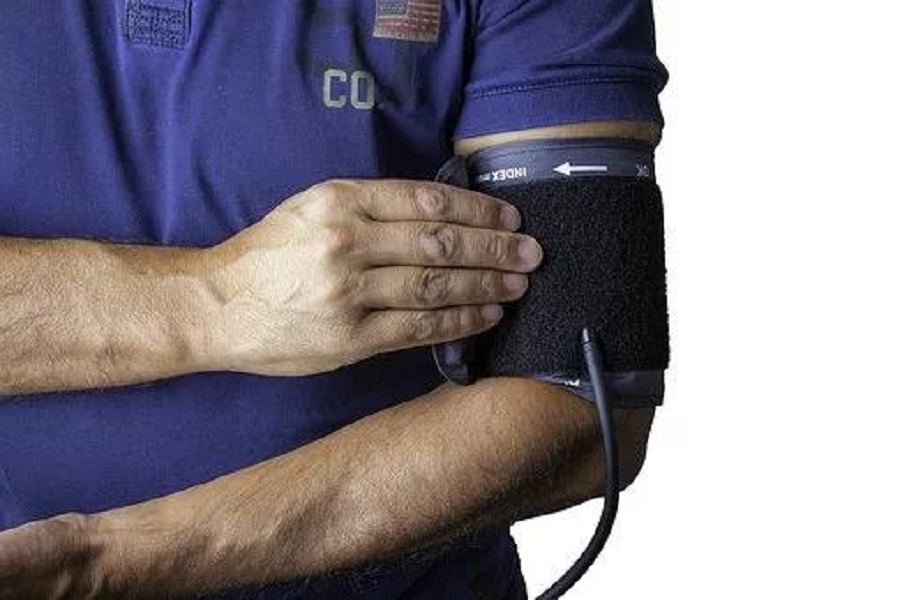Blood pressure is the force exerted by the blood against the blood vessels as the heart pumps. It is measured using a device called a sphygmomanometer, which measures both the systolic (pressure exerted during heart contraction) and diastolic (pressure during heart relaxation) pressure. Normal blood pressure provides a reading of 120 (systolic)/80 (diastolic) mmHg (millimeters of mercury).
During hypotension, decrease in blood pressure, these readings decrease to below 90/60 mmHg, which may lead to severe consequences if left untreated. However, it is not as severe, and thus low blood pressure can be managed at home without requiring medical assistance. The body utilizes several mechanisms in order to ensure that it maintains normal pressure, one of which is the circulatory system, which includes structures such as the heart and the blood vessels.
The heart responds to a decrease in blood pressure by increasing the rate/speed at which it pumps blood (heart rate) and the strength of the pump (heartbeat), while the blood vessels narrow (vasoconstriction) to increase blood flow to the heart and the rest of the body.
Here, we introduce 5 methods, which could result in a decrease in blood pressure.
A decrease in blood volume
A decrease in the volume of blood could lead to a decrease in blood pressure, depending on the severity. The body will employ the aforementioned mechanisms in order to maintain homeostasis (the medical term for stability). Nevertheless, the reduction of a vast amount of blood volume cannot be easily managed.
An example where such an occurrence may be observed is during physical trauma, where a person loses more than 30% of his total blood volume. Another example is during severe dehydration, either from not drinking enough water or from prolonged diarrhea, vomiting, or excessive exercise.
Medication
Certain medications have the ability to reduce blood pressure. The presence of salt within your body could lead to water retention, which in turn leads to stable or high blood pressure. Thus, drugs classified as diuretics, cause an increase in urine production, which in turn leads to the excretion of both salt and water. Another group of drugs called beta-blockers used to improve irregular heart rhythm, reduce the blood pressure by decreasing the heart rate and heartbeat.
Pregnancy
It is quite common for a woman to suffer from hypotension during pregnancy, especially within the initial weeks. The presence of an entirely new human within a person’s body forces the body to undergo changes in order to adapt.
One of these mechanisms is to widen the blood vessels (vasodilation) in order to increase the blood volume reaching the uterus. Furthermore, hormone levels, such as progesterone, that play a role in controlling blood pressure start changing, which leads to a decrease in both systolic and diastolic blood pressure.
Heart disease

As previously mentioned, one of the important mechanisms by which the body controls blood pressure is adjusting the heart rate and heartbeat. Thus, any problems that might arise in the heart will, as a result, lead to problems with blood pressure regulation. Examples of such issues are heart attacks, which could result in the death of a large portion of your heart muscles; another example is atrial fibrillation, where the heart does not have enough time to fill up with blood before pumping it to the rest of the body.
Sepsis
Sepsis or, for the non-medical people, blood poisoning, can occur due to several reasons. However, the outcome of the condition is similar, organ dysfunction due to the host being unable to regulate the infection. During a normal infection, a bacterium enters the blood of a patient and releases its toxins.
The cells of the immune system respond to this threat by releasing cytokines, which in turn results in vasodilation of the blood vessels, increasing blood flow, thus bringing the required cells to fight the bacteria. However, during bacterial sepsis, the entire body is undergoing inflammation resulting in all the blood vessels dilating; this, in turn, leads to a decrease in blood flow due to hypotension.
Our body works in union and thus, there are several other key players, than just the circulatory system, that take part in this homeostatic process. We introduced 5 mechanisms, which could result in a decrease in blood pressure, and how the regulatory mechanisms of the body might fail, leading to severe consequences. However, there are several other conditions that could lead to hypotension.
It is important to visit your doctor annually to check your blood pressure, especially as you age. Furthermore, one should maintain a healthy diet and weight and avoid or reduce things such as smoking or stress. We hope this article has sparked your interest in reading more about hypotension.

